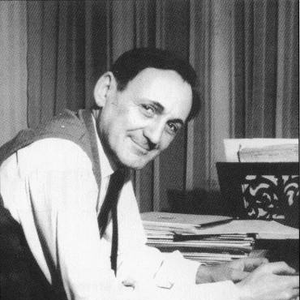
| Trackimage | Playbut | Trackname | Playbut | Trackname |
|---|---|---|---|---|
| 84349512 | Play | Quatuor: II. Andante | 00:00 Tools | |
| 84349513 | Play | Prelude, cadence et finale | 00:00 Tools | |
| 84349515 | Play | Incantation | 00:00 Tools | |
| 84349514 | Play | Quatuor pour saxophones: II. (Calmo) - Andante | 00:00 Tools | |
| 84349518 | Play | Prélude, Cadence et Finale | 00:00 Tools | |
| 84349523 | Play | Salve Regina | 00:00 Tools | |
| 84349520 | Play | Quatuor pour saxophones: I. Allegro non troppo | 00:00 Tools | |
| 84349517 | Play | Prelude | 00:00 Tools | |
| 84349516 | Play | Prelude, Cadence et Finale: Cadence | 00:00 Tools | |
| 84349519 | Play | Incantation, thrène et danse pour trompette et orchestre: Incantation | 00:00 Tools | |
| 84349522 | Play | Quatuor: I. Allegro non troppo | 00:00 Tools | |
| 84349524 | Play | Quatuor pour saxophones: III. Poco largo, ma risoluto | 00:00 Tools | |
| 84349521 | Play | Incantation, thrène et danse pour trompette et orchestre: Thrène | 00:00 Tools | |
| 84349525 | Play | Prelude, Cadence et Finale: Final | 00:00 Tools | |
| 84349526 | Play | Quatuor: III. Poco largo, ma risoluto | 00:00 Tools | |
| 90304278 | Play | Requiem: III. Sanctus | 00:00 Tools | |
| 90304279 | Play | Requiem: I. Introït et kyrie | 00:00 Tools | |
| 84349527 | Play | Danse | 00:00 Tools | |
| 88623305 | Play | Incantation, thrène et danse pour trompette et orchestre: Danse | 00:00 Tools | |
| 90304280 | Play | Quatuor: Calmo | 00:00 Tools | |
| 90304281 | Play | Thrène | 00:00 Tools | |
| 90304282 | Play | Requiem: II. Offertoire | 00:00 Tools | |
| 90304283 | Play | Requiem: V. Agnus Dei et communion | 00:00 Tools | |
| 90304284 | Play | Incantation, Threne et Danse: Danse | 00:00 Tools |

-
- 842
- plays
-
- 192
- listners
-
- 842
- top track count
Alfred Desenclos (7 February 1912 – 31 March 1971) was a French composer of (modern) classical music. Desenclos was a self-described "romantic" whose music is highly expressive and atmospheric and rooted in rigorous compositional technique. To support his family, Desenclos had to renounce continuing his general studies and work as an industrial designer until the age of 20, but in 1929, he entered the Conservatory in Roubaix, France, to study piano. Until that time, he had played only as an amateur. His sacred music belongs to the tradition begun by Saint-Saëns and continued by Fauré. He won the Prix de Rome in 1942. Desenclos's Messe de requiem was written in 1963 and published by Durand et Fils in 1967. In 1999, the piece was reprinted under the name of Atlanta-based composer Tristan Foison. Foison's mass was given its "American premiere" on 18 May 1999 in a performance by the Capitol Hill Chorale; soon after, the piece was discovered to be a note-for-note duplicate of Desenclos's. Read more on Last.fm. User-contributed text is available under the Creative Commons By-SA License; additional terms may apply.